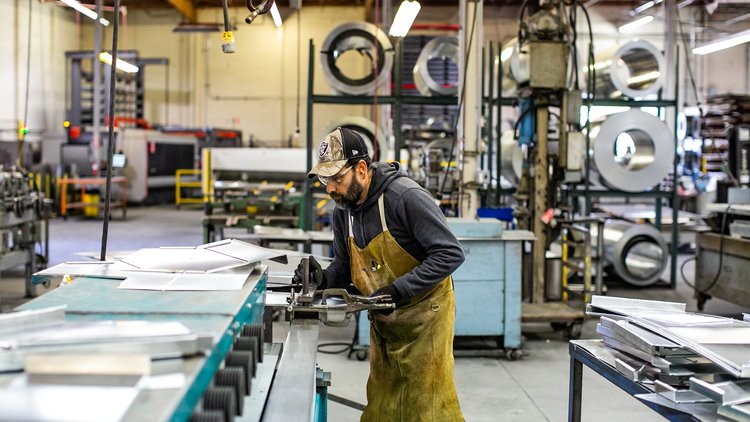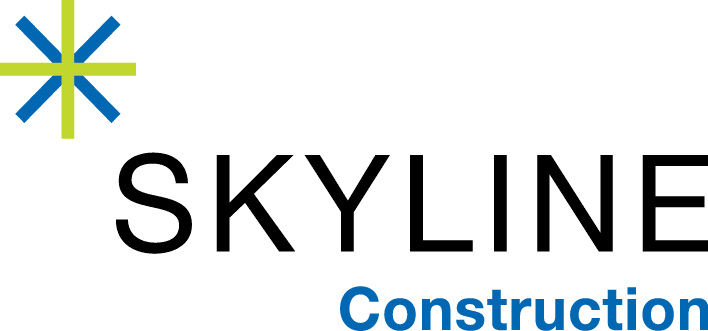Media & Events
Women in Construction: Silicon Valley CEOs, Vice Presidents Speak out on Challenges, Opportunities
To get a better understanding of what it’s like to be a woman working in the construction industry, we reached out to three local industry leaders — Michelle Acosta, vice president of operations for Acosta Sheet Metal Manufacturing; Jean Bjork, the owner and CEO of Bjork Construction Company Inc.; and Jessica Carps, CEO of Skyline Construction — to get their take. These interviews were conducted via email.

What’s been your biggest challenge being a female business leader in the construction industry?
Jean Bjork: My biggest challenge is being taken seriously in this industry. I have been on construction sites to meet with contractors, owners and design professionals, where a question is asked, and they look to my younger male assistant to answer. It really highlights the level of unconscious bias towards women in construction, but the great news is that I’ve seen change when it comes to women being accepted as equals. In my 35+ years of construction, I have seen the most progress in the last few years. Women are a big part of construction’s future and change is happening for the better.
Michelle Acosta: Having to take even more steps to “reach validation” is the first challenge that comes to mind. For example, at industry-specific events, I’ve often been asked, “so, who’s your husband?” … There have been countless instances where I am wrongfully judged by my appearance before being asked about my value, experience, or contributions to the industry (I’m sure many can relate). I’ve faced other, more difficult challenges, but I think this one is relatable to many women in my niche of the construction industry.
Is there an advantage to being a woman in this male-dominated field?
Bjork: The advantage is that we are usually the only female in the room. We stand out, and that’s fantastic in any industry. Also, I think most women are good multitaskers, and that is a trait that is required to be successful in this industry.
Acosta: Absolutely. Think about it this way: any time something is “not like the others,” it gets noticed. Very often, I’m one of the few, if not the only, women golfing at an industry fundraiser, in the sales meeting, etc. I choose to take advantage of this, and not let it deter me. Since the battle of “being seen” is already won, I capitalize on the opportunity to showcase my value and contributions.
Jessica Carps: Women are natural, social connectors and bring a level of empathy to difficult conversations and transactions. This lends itself nicely to instinctual negotiation strategies that look for mutually beneficial resolutions, versus a traditional, hard-line approach. It is critical to have unique and varied perspectives represented at any decision-making table, whether that be for construction projects or business strategies. Women look at complex problems from a different lens and ultimately add a balanced perspective that benefits all stakeholders.
What would you like to see happen to increase the ranks of women in the industry?
Bjork: We need more blue-collar women in the field. For that to happen, childcare needs to be more accessible to women who have to be on jobsites by 6-7 am. Currently, the largest problem for blue-collar women is that many daycare facilities don’t open until 7-8 am. Also, women apprentices don’t need to be the ones cleaning the job site, they need the training to do the job so they get the experience needed to be equal to their male counterparts. We also need more female leaders in the construction industry. Women in senior positions are not the norm.
Acosta: In a perfect world, I would like to see all barriers shattered, that way everyone has a truly equal opportunity. In reality, I’d like to see the continuation of demographic-focused groups, such as Women In Construction–A Bay Area SMACNA Mission Partner group. These groups help bring a sense of belonging to those that need it. There is a strong sense of community in these groups as they offer help and guidance in a specialized way. Simply put, there is strength in numbers.
Carps: There are lucrative and exciting career opportunities in the trades that provide career advancement, strong benefits, work-life balance, and the ability to a create meaningful impact within our local communities. As a society, we have neglected to share that narrative with young people, especially young women, and we have yet to remove the stigma associated with selecting a trade school vs a university education. We also need to make it appealing to women coming out of both trade schools and universities. That means not just meeting table stakes but creating best-in-class benefits that support women, mothers, and households with 2 working parents. It means providing childcare solutions and subsidies, creating flexibility, developing mentorship programs, evaluating traditional business development activities, and asking difficult questions to make meaningful change.

View the article in Silicon Valley Business Journal
ABOUT THE COMPANIES
Acosta Sheet Metal Manufacturing
- HQ: San Jose
- When founded: 1972
- What it does: Manufactures custom-made residential and commercial metals, roofing metals, HVAC products and custom-made pieces.
- How’s business: “Business is doing well. We are on track to meet our goals for the year, and look forward to new projects coming our way,” said Michelle Acosta, vice president of operations.
Bjork Construction Company
- HQ: Fremont
- When founded: 1988
- What it does: Full-service general contractor and wood carpentry subcontractor serving commercial and residential clients.
- How’s business: ”Business is great! We’re family owned and operated, have been in business for 35 years and are still going strong. I’m very proud of what we have built. I work to make our company a place where our diversity is something to be proud of,” said CEO Jean Bjork.
Skyline Construction Inc.
- HQ: Santa Clara
- When founded: 1996
- What it does: Commercial interior construction is the focus of Skyline, which is 100% employee owned and whose leadership is 42% female.
- How’s business: “Our business grew more than 25% year over year even in challenging economic times. We have continued to lean into our core strength of putting people at the heart of the business, and as a result, our customers are increasingly seeking us out as their contractor of choice across multiple markets that we serve. We are finding growth opportunities within our life science practice, and acquisition partners continue to seek to join the Skyline family of companies, helping us to fuel both geographic and service line expansion,” said CEO Jessica Carps.
READ NEXT
